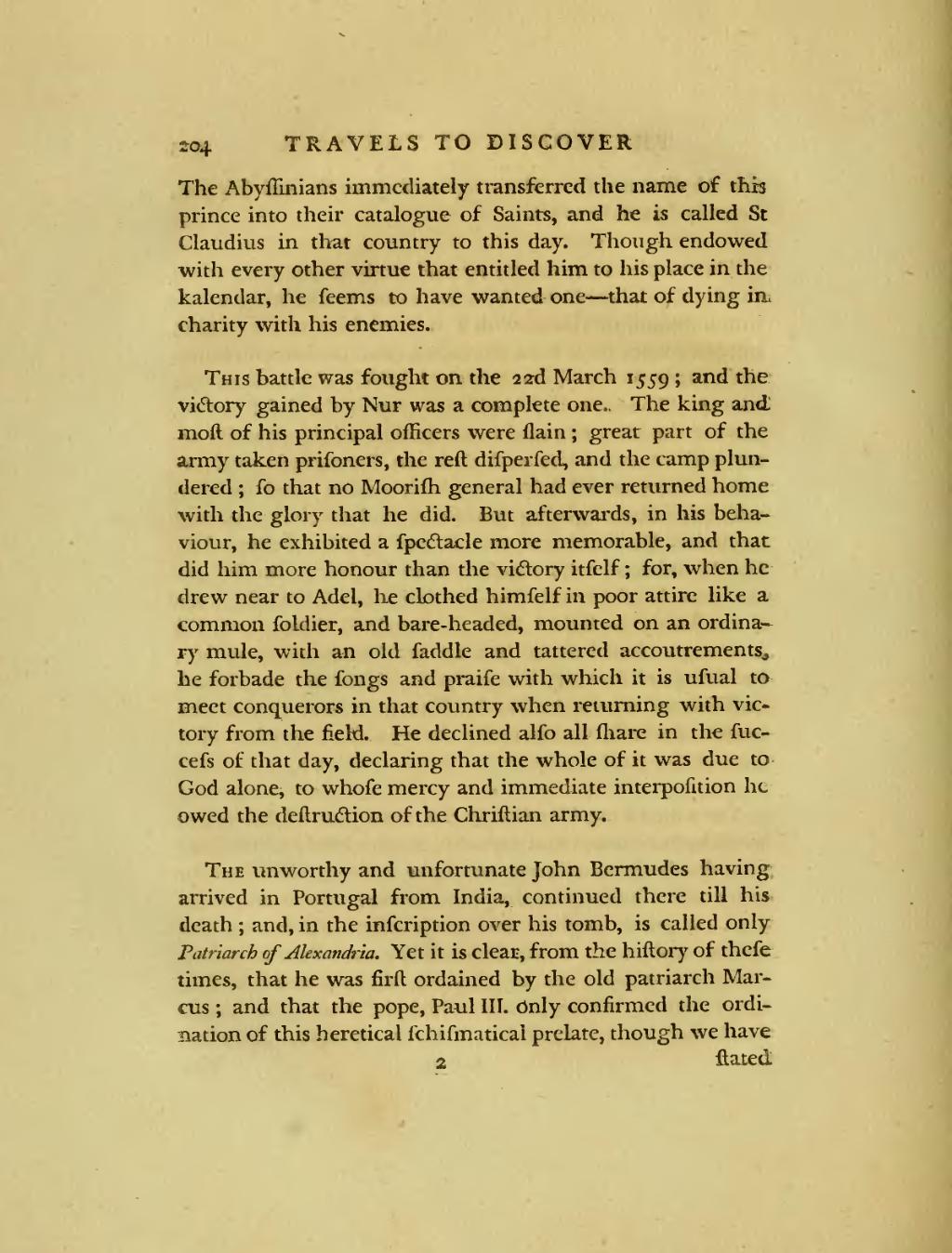The Abyssinians immediately transferred the name of this prince into their catalogue of Saints, and he is called St Claudius in that country to this day. Though endowed with every other virtue that entitled him to his place in the kalendar, he seems to have wanted one—that of dying in charity with his enemies.
This battle was fought on the 22d March 1559; and the victory gained by Nur was a complete one. The king and most of his principal officers were slain; great part of the army taken prisoners, the rest dispersed, and the camp plundered; so that no Moorish general had ever returned home with the glory that he did. But afterwards, in his behaviour, he exhibited a spectacle more memorable, and that did him more honour than the victory itself; for, when he drew near to Adel, he clothed himself in poor attire like a common soldier, and bare-headed, mounted on an ordinary mule, with an old saddle and tattered accoutrements, he forbade the songs and praise with which it is usual to meet conquerors in that country when returning with victory from the field. He declined also all share in the success of that day, declaring that the whole of it was due to God alone, to whose mercy and immediate interposition he owed the destruction of the Christian army.
The unworthy and unfortunate John Bermudes having arrived in Portugal from India, continued there till his death; and, in the inscription over his tomb, is called only Patriarch of Alexandria. Yet it is clear, from the history of these times, that he was first ordained by the old patriarch Marcus; and that the pope, Paul III. only confirmed the ordination of this heretical schismatical prelate, though we have
